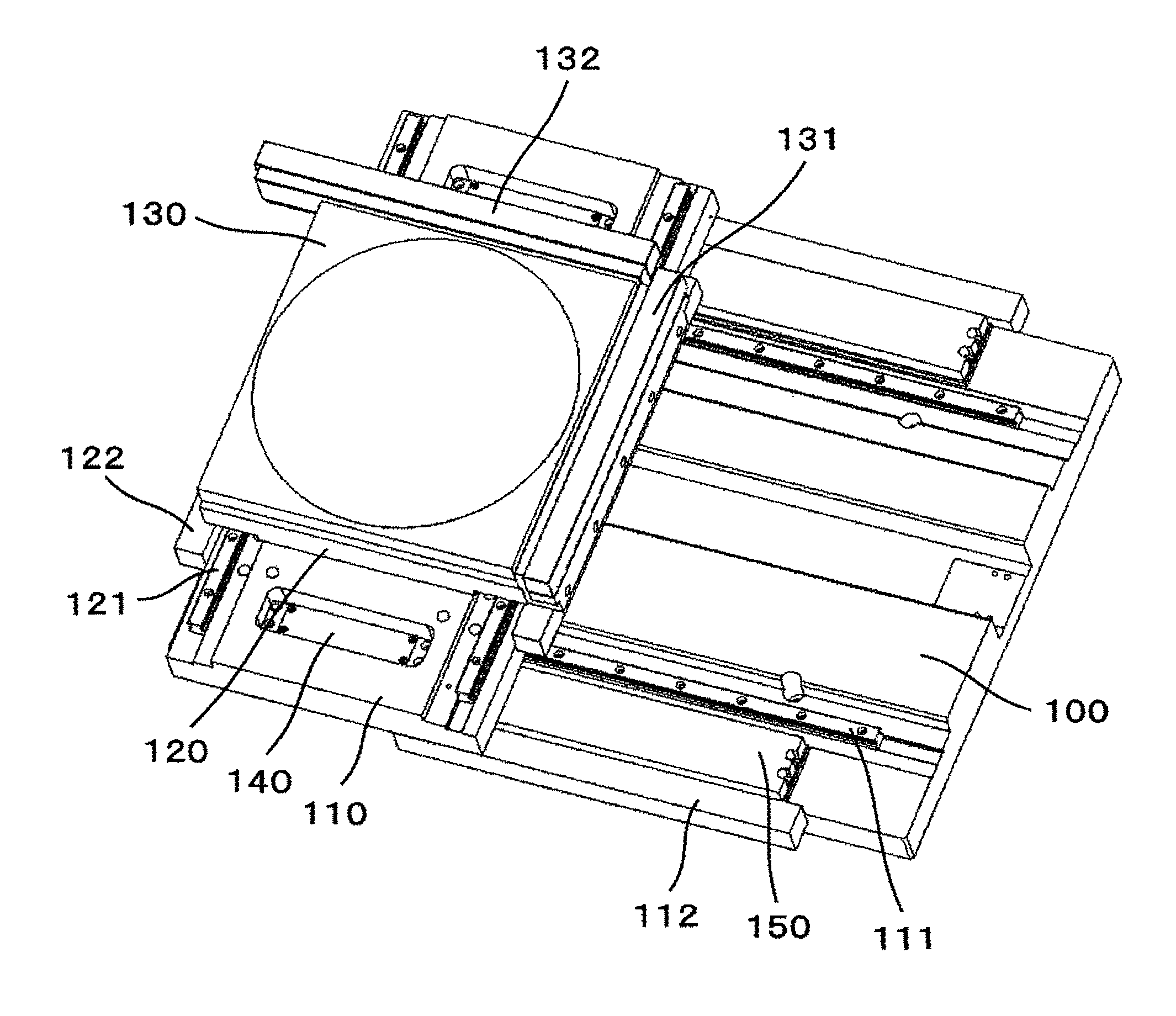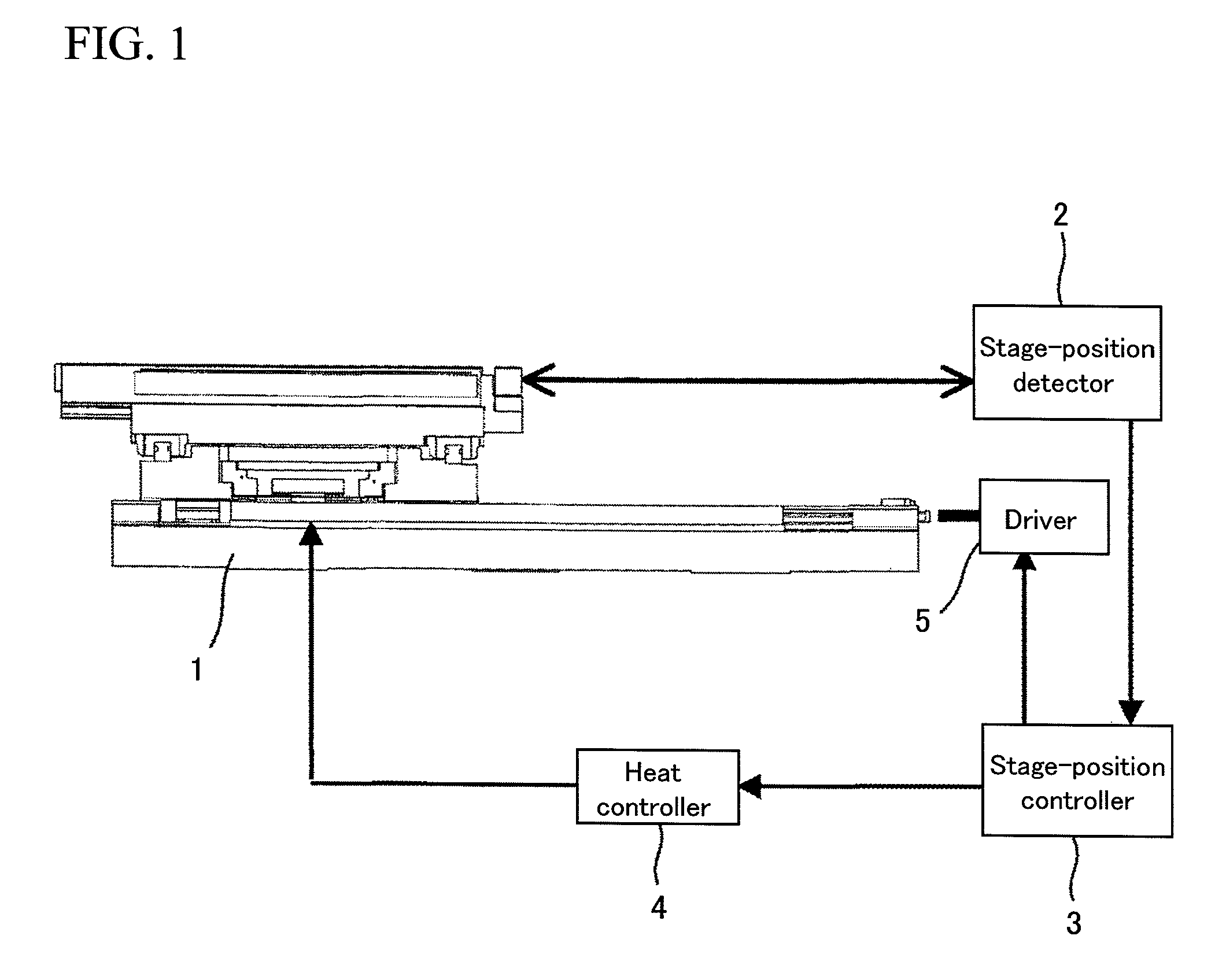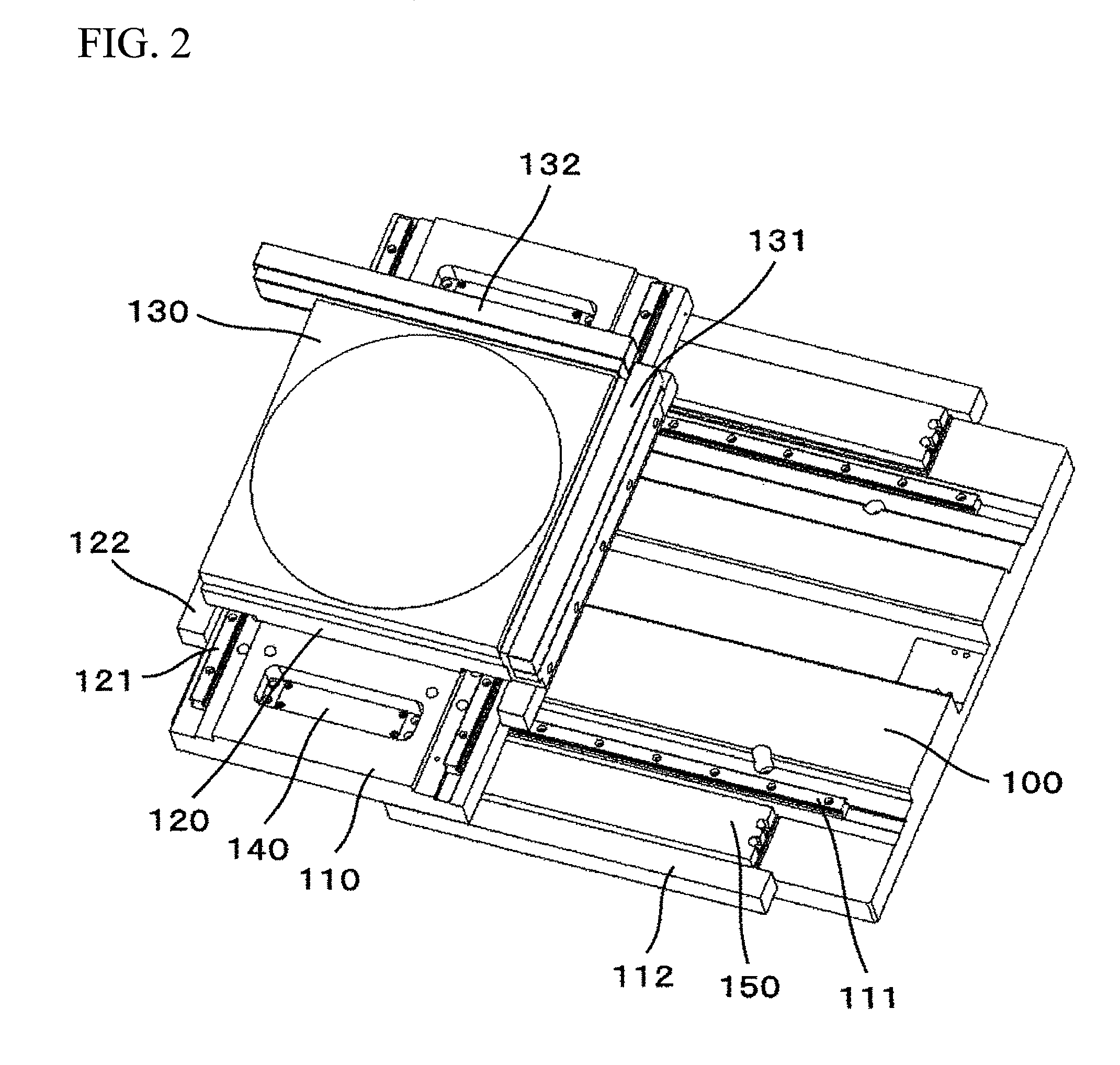Specimen stage
a technology of specimen and stage, applied in the field of specimen stage, can solve the problems of system complication and increased cost, increase production cost, and longer time for temperature control of the upper layer, and achieve the effect of reducing the movement of the stag
- Summary
- Abstract
- Description
- Claims
- Application Information
AI Technical Summary
Benefits of technology
Problems solved by technology
Method used
Image
Examples
first embodiment
[0029]FIG. 1 is a schematic diagram of a stage unit. The stage unit includes a stage mechanism 1, a stage-position detector 2, a stage-position controller 3, a heat controller 4 and a stage driver 5. Additionally, the stage unit is surrounded by an unillustrated vacuum chamber, and the vacuum chamber is connected to a mirror body of a charged-particle beam apparatus exemplified by an electron microscope. The charged-particle beam apparatus is connected to an unillustrated control device, and the stage-position controller and the like to be described later are controlled by a command initiated from the control device.
[0030]FIG. 2 is a perspective view of the stage mechanism. The stage mechanism 1 includes: an X table 110 capable of moving on a base 100 in an X direction; a Y table 120 capable of moving on the X table in a Y direction; a specimen holder 130 placed on an upper portion of the Y table; and an X mirror 131 and a Y mirror 132 for measurement by the stage-position detector ...
embodiment 2
[0045]FIG. 6 shows a braking mechanism 140 into which a heat-generating body is inserted. A heat-generating body 160 is inserted into the upper surface of a brake pad 142 of the braking mechanism 140. When the brake pad 142 and the heat-generating body 160 adheres to each other, an attention should be paid not to include air bubbles therebetween in order to efficiently conduct an amount of heat generated by the heat-generating body 160. A heat insulating sheet 161 is introduced into an upper layer of the heat-generating body 160 to efficiently conduct the heat to a surface member. With regard to the flow of the heat control, Steps S11, S12, and S13 of FIG. 5 are altered. In Step S11, the temperature of the brake pad 142 is detected. Then, in Step S12, a thermal analysis is performed on the basis of: the temperature of the brake pad 142, the movement distance, the brake force, the binding condition, and the heat conduction condition. Thereafter, in Step S13, a heat generation amount ...
PUM
 Login to View More
Login to View More Abstract
Description
Claims
Application Information
 Login to View More
Login to View More - R&D
- Intellectual Property
- Life Sciences
- Materials
- Tech Scout
- Unparalleled Data Quality
- Higher Quality Content
- 60% Fewer Hallucinations
Browse by: Latest US Patents, China's latest patents, Technical Efficacy Thesaurus, Application Domain, Technology Topic, Popular Technical Reports.
© 2025 PatSnap. All rights reserved.Legal|Privacy policy|Modern Slavery Act Transparency Statement|Sitemap|About US| Contact US: help@patsnap.com



